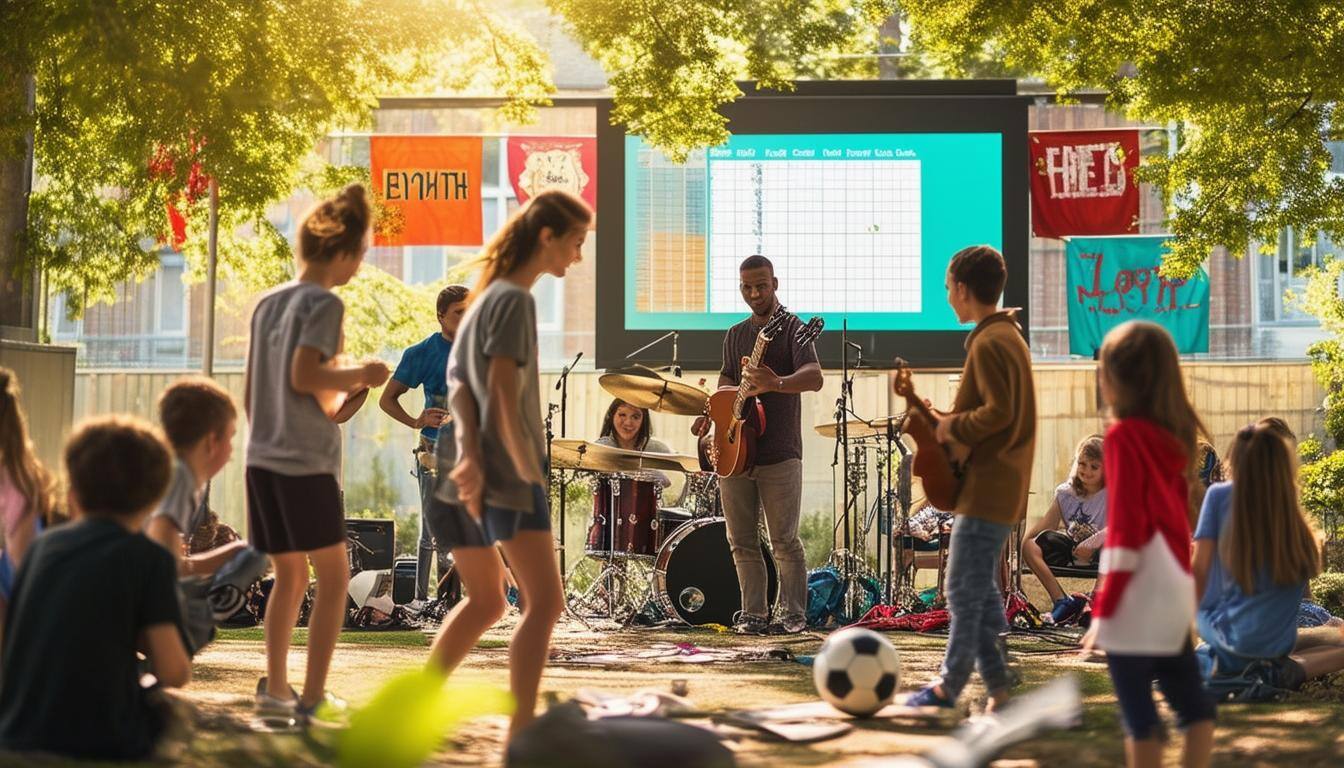The Great Escape: Why Teens Are Ditching Sports and Extra-Curriculars
The rhythmic thud of trainers on the court, the tap-tap-tap of dance shoes, the excited chatter in the drama club – these are the sounds of childhood. But as kids transition into their teenage years and the doors to secondary school swing open, a different sound can sometimes be heard: silence. A growing number of teens are ditching their extra-curricular activities, leaving behind sports teams, clubs, and creative pursuits in droves.
Why the sudden exodus? It's a complex issue, but one major factor is the newfound independence and mobility that comes with adolescence, particularly when they start secondary school. Suddenly, they're not reliant on mum and dad for lifts. They might have access to public transport, or the freedom to cycle or walk to wherever they fancy. This newfound autonomy, coupled with the increased pressures, demands of secondary school and possible peer pressure can create a perfect storm for extra-curricular dropout.
The Siren Song of Freedom (and Screens)
Think about it: you're 15, you can finally go wherever you want, and your timetable is suddenly packed with homework, social pressures, and the tempting allure of simply chilling out. The structured commitment of a sports team or a club practice might start to feel like a burden rather than a joy. The alternative – hanging out with mates, scrolling through social media, or catching up on the latest series – can seem a lot more appealing.
Here's the stark reality: studies back up this trend.
- The Aspen Institute's Project Play (US based but globally relevant) reported that only 38% of kids aged 6-12 played team sports regularly in 2018, down from 45% in 2008. This decline often continues, or even accelerates, into the teenage years.
- Sport England data has consistently shown a dip in sports participation as children transition from primary to secondary school. Although numbers fluctuate, the trend is one of concern.
- The Youth Sport Trust, a UK charity, highlight in their research that a decline in enjoyment of physical activity in the early secondary school years is a major contributor to dropout rates.
- The Millennium Cohort Study, which tracks the lives of thousands of young people in the UK found that fewer young people are taking part in organised activities than 10 years ago. This coincides with a significant rise in screen time and sedentary activities.
Beyond Independence: Other Contributing Factors
While increased freedom plays a significant role, it's not the only culprit. Other factors contribute to the great extra-curricular escape:
- Academic Pressure: The pressure to achieve high grades and prepare for university can be immense. Many teens feel they simply don't have the time for extra-curriculars on top of a rigorous academic timetable, especially with GCSEs and A-levels looming.
- Specialisation: There's a growing trend of kids specialising in one sport or activity at a young age. Burnout can become a major problem when the pressure to excel in one area becomes overwhelming.
- Cost: Extra-curriculars can be expensive, especially competitive sports or music lessons. This can create a barrier to participation for families with limited resources.
- Social Dynamics: Secondary school social circles can be complex and sometimes challenging. If a teen's mates aren't involved in a particular activity, they might be less likely to stick with it.
- Lack of Enjoyment: The activity may have lost its spark. Secondary school is a time when many teenagers are exploring their interests, and what they enjoyed when they were younger might not hold the same appeal anymore.
The Key: Enjoyment and Development Fuel Retention
This is where a crucial point comes in: if teens are genuinely enjoying an activity and feel they are developing their skills, they are far more likely to stick with it. It's not just about winning or being the best; it's about the process, the camaraderie, and the sense of personal growth. When activities are fun, engaging, and tailored to individual needs, they become something teens want to do, not something they have to do.
Tackling the Problem: Enter YourZown
This issue of declining participation in extra-curriculars, along with the often-overlooked burden of administrative tasks associated with running these activities, is precisely what we're passionate about addressing at YourZown. These two core problems are at the very heart of our mission. We believe that by simplifying the administrative side and helping create environments where enjoyment and development are paramount, we can help reverse this trend.
Why It Matters
This trend is concerning because extra-curricular activities offer numerous benefits that extend far beyond the playing field or stage. They:
- Promote physical and mental wellbeing.
- Teach valuable life skills like teamwork, discipline, and time management.
- Foster a sense of belonging and community.
- Provide opportunities for leadership and personal growth.
- Can boost academic performance and university applications.
What Can We Do?
Addressing this issue requires a multi-faceted approach:
- Parents: Encourage balance. Support your teen's interests, but also emphasise the importance of downtime and managing their timetable effectively. Keep the lines of communication open to understand their concerns and ensure they are enjoying their activities.
- Schools: Offer a wide range of extra-curricular options that cater to diverse interests, not just the traditional sports. Promote a culture that values participation, focuses on enjoyment and skill development, and makes activities accessible to all students.
- Coaches and Mentors: Create a positive, inclusive and supportive environment. Focus on skill development, enjoyment, and personal growth rather than solely on winning. Make it fun!
- Teens: Be mindful of your choices. Recognise the value of staying involved and actively seek out activities that align with your passions. Don't be afraid to try new things and step outside your comfort zone.
The teenage years are a time of exploration and self-discovery. While it's natural for teens to seek independence and explore new paths, it's crucial to ensure they don't abandon the valuable experiences and opportunities that extra-curriculars provide. By prioritising enjoyment and development, we can create a culture where teens are motivated to stay involved.
So, how exactly is YourZown looking to revolutionise the world of extra-curriculars and tackle this decline in participation? That's a story for our next blog post! Stay tuned to discover how we're building a platform designed to empower organisers, engage participants, and ultimately, help teens rediscover the joy of extra-curricular activities.


